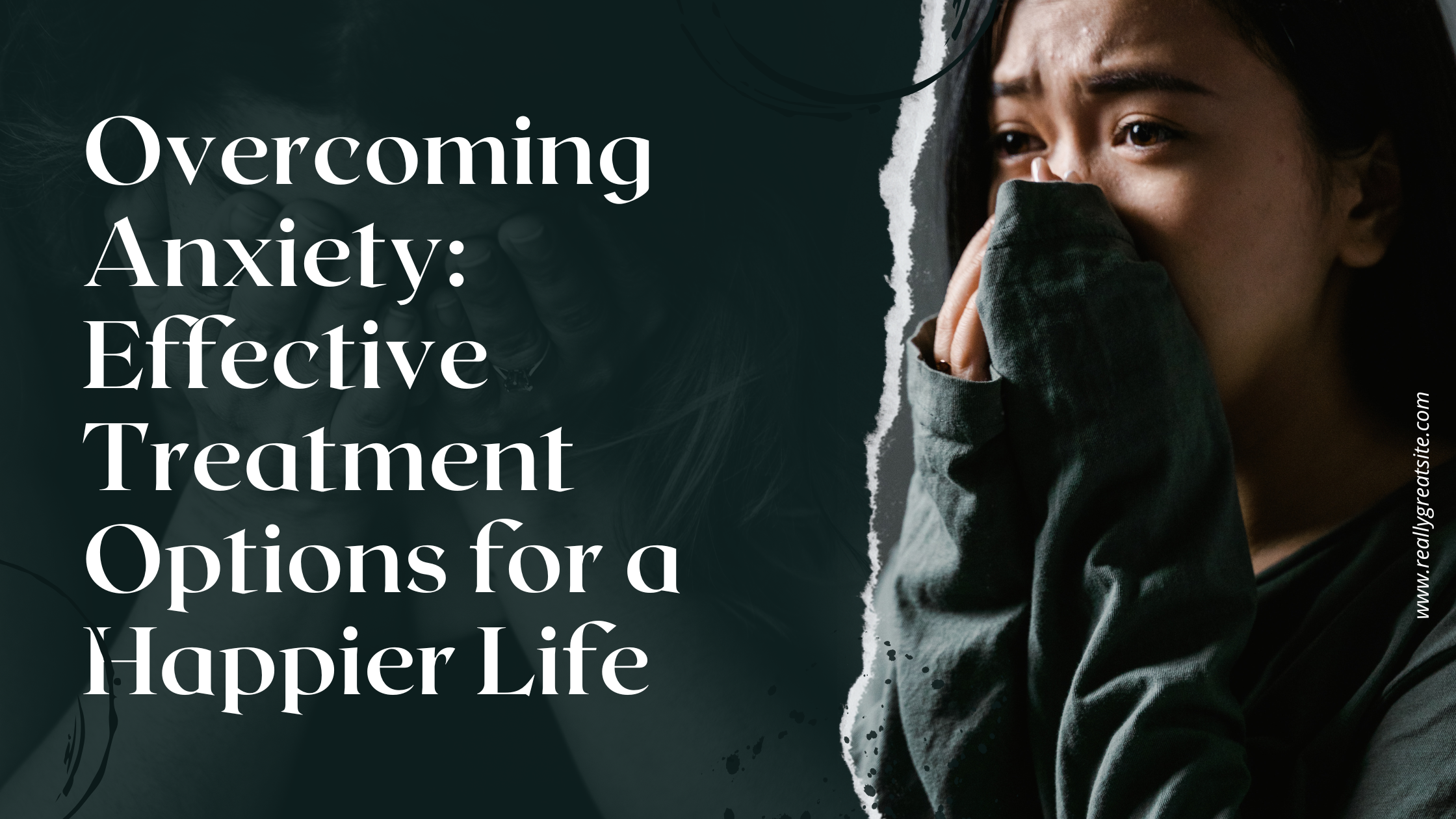
Overcoming Anxiety: Effective Treatment Options for a Happier Life
Anxiety is a common mental health issue that affects millions of people worldwide. It is characterized by persistent feelings of worry, fear, and nervousness that can significantly impact a person’s quality of life. Fortunately, there are several effective Anxiety treatment options available to help individuals overcome anxiety and lead happier, more fulfilling lives. In this article, we will explore some of these treatment options.
Cognitive Behavioral Therapy (CBT)
CBT is a form of talk therapy that focuses on changing negative thought patterns and behaviors that contribute to anxiety. This type of therapy involves working with a therapist to identify and challenge negative thoughts and beliefs, develop coping strategies, and learn relaxation techniques. CBT is a highly effective treatment for anxiety and has been shown to help individuals manage symptoms long-term.
Medication
Medication can be an effective treatment option for individuals with severe anxiety or those who do not respond well to therapy alone. Anti-anxiety medications, such as benzodiazepines, can help reduce symptoms of anxiety quickly. However, they can also be habit-forming and have potential side effects. Antidepressants, such as selective serotonin reuptake inhibitors (SSRIs), are another medication option that can help reduce anxiety symptoms over time.
Mindfulness-Based Stress Reduction (MBSR)
MBSR is a mindfulness-based intervention that combines meditation, yoga, and mindfulness practices to reduce stress and anxiety. This type of therapy focuses on developing awareness of the present moment and accepting thoughts and feelings without judgment. MBSR has been shown to be effective in reducing symptoms of anxiety and improving overall mental health.
Exercise and Nutrition
Exercise and nutrition play a vital role in managing anxiety. Regular exercise can help reduce stress and anxiety by releasing endorphins, which are feel-good hormones. Eating a healthy, balanced diet can also help reduce anxiety by providing the body with the nutrients it needs to function properly. In addition, limiting caffeine and alcohol intake can help reduce anxiety symptoms.
Self-Care
Self-care is an essential part of managing anxiety. This can include activities such as taking a relaxing bath, reading a book, or spending time in nature. It is essential to take time for yourself and prioritize your mental health. This can help reduce stress and anxiety and improve overall well-being.
Conclusion:
In conclusion, anxiety can significantly impact a person’s quality of life. However, there are several effective treatment options available to help individuals manage and overcome anxiety. Whether it is through therapy, medication, mindfulness practices, exercise and nutrition, or self-care, there are many ways to reduce symptoms of anxiety and improve overall mental health. If you are struggling with anxiety, it is essential to seek help from a qualified mental health professional to develop a treatment plan that works best for you. With the right support and resources, it is possible to overcome anxiety and lead a happier, more fulfilling life.

